Video title: Empower the Sense of Belonging and Solve the Worker Shortage Challenge
Link on Youtube: https://www.youtube.com/watch?v=-kLNap8Di0E
Episode Transcript
Jeff: Whether you manage an in-house cleaning operation or perhaps own an operate a building service contracting company, there’s one simple truth you all face. And that is that you need workers, good workers. You look around and you can’t find them. Well, what’s the solution? Today’s webcast is going to address this issue with a theme of how to empower the sense of belonging and solve the worker shortage challenge. We’re going to invite an expert panel of executives from the non-profit sector who are going to share some thoughts that are perhaps unique, but ones you can embrace and really benefit from. My name is Jeff Cross, I’m the media director for ISSA, and this is “Straight Talk.”
Well, gentlemen, welcome to our program today. It’s great to have all three of you on, as we talk about this issue. Let’s do some quick introductions and perhaps what you can do is set the stage for us, introduce yourself, your organization, and just tell us why you think this time topic today is so important. And Jimmy, let’s start with you.
Jimmy: Hello. Thank you for having me. My name’s Jimmy Vickers. I am a senior operations executive for Global Connections to Employment-based in Pensacola, Florida. I, myself, am working remotely outside Washington, D.C., and I have quite a few federal contracts under the Department of Defense in Florida, Oklahoma, Georgia, California, Tennessee, and Kentucky. I’m responsible for our data support, custodial, and facilities maintenance. I’ve worked with, and under the AbilityOne Program either at a non-profit agency, as a BSC, or for the government as a COR for about 14 years. And I can tell you that from a government perspective, the AbilityOne Program was very seamless and easy to work with. And as with my experience with a non-profit agency, I can tell you that there are a lot of solutions that I was unaware of until I became into this industry.
And one quick one that I will bring up is that I mentioned that I work with the DoD, I have a lot of Army contracts. And if you’ve ever served in the Army or been to an Army post, you know, that they are out in the middle of nowhere. And just a quick example Radcliff, Kentucky, just outside of Fort Knox, minimum wage is $7.40 there. My entry-level lowest-paid facility maintenance person makes over $16 an hour. And there are solutions like that can truly help with this labor shortage when you tap into an untapped population of people with disabilities.
Jeff: Well, thank you for that. Interesting gap of a wage there that you just brought out. So, Joe, let’s go to you.
Joe: Thank you, Jeff. I’m Joe Diaz, the chief operating officer for Didlake Incorporated. Didlake is a non-profit rehabilitative services organization headquartered in Manassas, Virginia. And for over 55 years, Didlake has created opportunities for people with disabilities through services that connect them to employment, education, and the community. We serve over 2,000 people with disabilities annually throughout Virginia, Maryland, Pennsylvania, and Washington, D.C. Today’s topic is so important because every year millions of qualified applicants with disabilities experience barriers to employment, including finding and keeping a job.
The labor force participation rate in November 2021 was 37.7% for people with disabilities, compared to 76.7% for people without. For the past 16 years and over this translates to 24.5 million people who are not in the labor force. What’s more, the GDP could get a boost up to $25 billion if just 1% more persons with disabilities join the U.S. labor force.
Currently, there are more job openings in the U.S. than workers and many are not utilizing this critical talent pool. By leveraging this talent pool, companies can realize significant gains in profitability and value creation. With over 30 years of experience in a clean industry managed by Green Building certification, Didlake is currently cleaning over 20 million square feet a day for the federal government. High-quality work and customer satisfaction have led to decades-long relationships with customers. Next year, we will celebrate 30 years of cleaning the Pentagon, over a decade of cleaning our nation’s national treasures. Remember diversity drives innovation.
Jeff: Great details. Thank you for that. And last but not least, Rick.
Rick: Thanks, Jeff. My name is Rick Sebastian, I’m the president and CEO of the Kennedy Center headquartered in Trumbull, Connecticut. We’re in the New York City Metro area. We’re a 70-year old organization supporting people with disabilities. We’ve been in the janitorial and facilities management field since about 1971. I’ve personally been working with people with disabilities for about 40 years, the last 25 years in facilities management. And when we see what’s happening with our great resignation or the great awakening, as some are calling it, we continue, as Joe said, to leave out a very large untapped labor force. And that is the group of people who have disabilities, who just need an opportunity to come into your operation or any operation throughout the country, and also internationally and engage in bringing direct benefit to your bottom line immediately based on their arrival as an employee.
Jeff: So, obviously, we’re talking about how to find good workers for like clean buildings to take care of facilities. Let me ask this question of you folks, what type of organization use your services are these only government contracts we’re talking about or what?
Rick: We are all three of us that are on this particular call are involved in government contracting at a federal level, as well as that state and local level. In addition to that, our workforce is working in a variety of commercial sectors as well as residential sectors. And we bring a solution to small businesses and big business with this untapped labor force.
Jeff: So, we see the solution it’s there, there’s a labor pool that could be tapped into. Let’s talk about some success stories. Obviously, that will help people appreciate the value of this. Joe, I think you have some to share.
Joe: Yeah, we do a lot of different work for the federal government. And we find that many people with disabilities the only way that they are able to serve their country is by working on contracts, you know, and many of them work on custodial contracts. So we are doing a job, a gentleman, I’ll call him Matthew was actually working with one of our elite special forces. And the commanding officer of the special forces gave him a coveted special forces coin, commanders coin.
And he said, “Your contribution to the success of our unit is just as important as any other military member or civilian in … I almost said the word. “Is just as important of any other soldier or civilian that is working for the Navy. I take great personal pleasure in offering our sincere appreciation for your support. Congratulations on a job well done.” But, the point that all three of us want to get across is Matthew is but one of millions of individuals that are out there right now that bring this type of dedication and talent to the workforce. And it’s, and you know, these are lines of business right now where people are really, really struggling to find employees. And we have an untapped labor force that is just waiting to excel and prove themselves.
Jeff: So, I believe there’s some stories to tell here about cleaning some well-known public buildings. Joe, why don’t you tell us about that? Start us off and then we’ll go to Jimmy.
Joe: Didlake also cleans many national treasures. They’re places that you have been to and seen yourselves toured and visited, and the government entrusts people with disabilities to provide these services. I wish I could tell you what sites they are, but the government says we can’t.
Jimmy: But I think that’s an interesting point to note that this is not just, yes, it’s a federal building where people are working every day, but there are people that are coming from all over to see these buildings and they’re witnessing the work we’ve done by people with disabilities. And they are some of the most prestigious locations to gain access to. And our people are there 24/7.
Jeff: All right. So, I think we can see the impact that this pool of workers has and that the work they’re doing in important buildings with high security obviously as well. Let me ask this question. How much impact can this have on the cleaning industry? Let’s talk about that. And Rick why don’t you start us off.
Rick: Yeah. Tremendous impact, Jeff. I think the first thing to know is that all of us that are in business are looking first and foremost at our ability to be sustainable businesses. And so when we look to our workforce as making up the largest portion of our expenses, we need a workforce that shows up committed on a daily basis. We need a workforce that has a commitment to quality. We need a workforce that has a commitment to customer service. All of that is rolled into the people that we employ and the people that we could bring to other facility management businesses to address your specific bottom line. When I think of the impact that our employees make, they’ve struggled for most of their life to get a job. When they’re given an opportunity to get that job, immediately we can decrease the business’s workers’ compensation rate because our folks aren’t going to take risks that many other employees would take.
As I said, they’ve struggled to get that job. They’re not willing to risk it by standing on a desk to change a light bulb, for example, or standing on a chair. The second thing is I’ve already said they show up, they’re committed. I think one of the great benefits that has occurred throughout the last two years with the COVID pandemic is that the janitorial workforce has been front and center in the fight to ensure safety for everyone that comes into a building. And once again, our people with disabilities are there, they’ve shown up when many other folks in those buildings have worked remotely. Our men and women show up on a day-to-day basis, and that goes directly to the bottom line and we reduce turnover and retention costs.
Joe: You know, Jeff, if I may add to Rick’s comments, our folks, our employees were deemed essential employees throughout this pandemic. So our people, our folks with disabilities, our employees were out there this entire pandemic when most people were not. And what were they doing? They were ensuring a safe environment so that people could return to these national treasures, to these government buildings, to ensure that it’s safe for our elected officials to go into these buildings. And scientists, you know, so they are again, essential. They have been essential for the past two years and they were a key part of the United States fighting the pandemic and ensuring we have safe work environments.
Jeff: Jimmy, anything to add?
Jimmy: It was interesting to see how things played out during the pandemic. You know, we’ve worked in this industry for quite a while. We know how important our people are, and that’s the only reason that we’re in the roles that we’re in. And we’re able to have the success that we do have. And it actually felt good over the last couple of years to see them get the recognition that we know they’ve deserved for years. And to hear that come from generals or elected officials, as Joe mentioned. To see it come from some of the most important people that they get to serve on a daily basis, to see that recognition come back down to them was huge. And the ownership that they’ve shown throughout their careers, but also just this past couple of years where I need to get there.
So, whatever they need to finish that sentence with, whether it’s, so this general can get to work. So this person can come and serve our country. They know the greater mission that their job is. It’s not just, I have to do this custodial test today. They’re part of something much bigger. And that ownership being able to be part of that federal entity, whatever it is. It was visible, it was tangible, you were able to see it just in their actions and their spirits. It was something incredible to see during a very difficult two years.
Jeff: Absolutely. Absolutely. Let’s talk about obstacles. You know, the fact that you have a workforce of disabled people who are qualified and that wanna work, there could still be obstacles that you’re seeing. Let’s talk about those. And Rick, I believe it’s your turn to comment.
Rick: Okay, great. I, I think one of the things that we’ve seen, so earlier this year, we celebrated the 30th anniversary of the Americans with Disabilities Act, the ADA. And in those 30 years, we’ve only increased employment for people with disabilities by 1%. And so that’s going to be our biggest obstacle. We have legislation that provides access, but that access is then limited. I think one of the biggest obstacles that we have in reaching out to the commercial sector as employers, is that people with disabilities aren’t in their diversity supply chain. And so, if you look at the supplier network for most commercial organizations, we’ll have women-owned businesses, we’ll have minority-owned businesses, we’ll have veteran-owned businesses.
People who have disabilities are not a part of that check the box in the supplier diversity. And so I think that’s going to be a significant obstacle. In the conversation that we’ve been having again, during the pandemic, but not related to the pandemic, is the diversity, equity, and inclusion conversation that is sweeping the country. Our population of people with disabilities has to be part of that DEI conversation. And so when businesses are committed to DEI, we want to ensure that people with disabilities are at their table and at their employment.
Jeff: And Jimmy, do you see any obstacles besides what Rick just brought up?
Jimmy: You know, Rick brought up some amazing points. I wanna look at it from a little bit different perspective. A lot of the biggest obstacles that we have are some misconceptions with people with disabilities. And, you know, some that can be an egregious question. Like if I bring in somebody with disabilities, are they going to eat my food? I mean, these are questions that we’ve received from government customers before. And there’s an education obstacle that must take place in order to bring in a population that doesn’t have the work experience to give an opportunity. And, you know, when the first word that came to mind, when I heard you mention obstacle was accommodations. That’s a big thing of what we do in order to make our people successful.
And a lot of times that’s their qualifier. They have a documented disability and the need of an accommodation in order to either obtain or maintain that employment. That’s where we come in. And sometimes, those examples, one of my favorite examples was there was a person who had seizures and a normal computer monitor would trigger their seizure. An iPad was the solution. It doesn’t have the same wave. If you ever watched a movie and you see the film on an old TV screen where it’s like a black line going up and down, that apparently doesn’t exist on an iPad. Who knew? Well, we found out once we got some experts involved and they were able to use an iPad now to do their job, which was obviously necessary to do their job.
It was a quality control person. They needed that technology, but it just, they could not use a normal monitor, an iPad solved the problem. A simple accommodation that otherwise would’ve disqualified a person from working because they showed up and weren’t able to do the task as their predecessor were able to do it. And so they’re not all going to be that simple. But that just goes to show that sometimes there’s just that little education hurdle that once we get over it, to my knowledge, that person is still working. It’s been over 20 years in a different role now. They’ve progressed, but it was one little hurdle, one small obstacle that that person needed in order to be successful.
Jeff: That’s a refreshing story. Thank you for sharing that. Joe, anything to add before we move on?
Joe: Yeah. Rick and Jimmy did an excellent job and they really focused on education and accommodation. I wanna point out that many, many of our folks do not require accommodations, but the majority of accommodations are less than $500. Okay. So we’re not talking about major, major reengineering here. But you know, when I think about the word disability and talk about education, dis is a negative word. Dis, negativity. Ability is a positive word. What we find is the people out there have tremendous abilities that dis piece doesn’t apply. Only thing they’re asking for is to stop being dissed by people and have an opportunity to be successful. Just be given an opportunity to work. That’s all these folks are looking for.
Jeff: All right. Maybe I should ask this question. When you talk about disabled workers, what are we talking about? What type of disabilities?
Rick: Yeah. So, there are more than 100 definitions in the Code of Federal Regulations for disability. We’re looking at people who have a relationship with a physician or a licensed practitioner who is a diagnostician. I could have an intellectual disability. I could have a cognitive disability that impacts how I speak. I could have a disability that is mental illness. We’re starting to see in media conversations, more and more discussions about the mental ill group of people that are in each of our communities. We work with people who have physical disabilities.
We work with people who are blind. Although people who are blind, don’t see blindness as a disability they see it as blindness. We work with people who have hearing impairment or who are deaf. We work with people who have a variety of chronic medical conditions that wouldn’t otherwise be categorized as disabling, but the basis of the medical disease that they’re working with, presents some of those barriers that would be disabling. And to Jimmy’s point, a simple accommodation corrects all of that and has that disability sitting in the background and to Joe’s point, having ability to be front and center as an employee.
Jeff: Very nice. Anything to add Jimmy or Joe?
Jimmy: I would say, probably goes back a little bit to the education aspect of it. And it just takes a little bit of training and understanding to know that everything that Rick just said, not all of those are visible disabilities and that’s a big statement that we’ll hear from everyone where it’s like, well, they don’t look it. And it’s like, well, not everybody’s disability is going to be something that you’re able to see.
And frankly, probably more people that don’t have a technical diagnosis, have some form of disability in some way. And when we work to train with our people one of my favorite things that I’ve ever heard was, you know, if you can teach a person with autism, you can teach anybody because what we’re really doing when we’re training is we’re finding out how to make that person successful. And so we find out whether it’s an accommodation or whether it’s just a simple different training method that we need to do, that’s what we do to make them successful and everybody learns differently.
Rick: Yeah. Yeah.
Joe: And that was the point I was gonna make. What Jimmy touched on his last point is, you know, when you think about disabilities, all that means is that a person learns differently and you may have to teach them a different way. And that’s when organizations like the three of us work for, come in and provide those supports to organizations out there, you know, in your membership. You know, and I would also point out that people with disability, is the only group that any one of us could join at any time. And when people disparage persons with disabilities, I remind them of that. You are a step off a ladder, a step or fall down the stairs, a trip in your kitchen, away from being that person who you’re denying an opportunity at this point in time.
Jeff: Can you talk about the types of organizations that could hire the workers we’re discussing here? We discussed the government contracts in the bigger picture. I had a phone call recently from a contractor who can’t respond to RFPs because he doesn’t have workers. Would this help that kind of company, a smaller contractor or a smaller facility?
Rick: Absolutely. Yeah. 100%. Absolutely.
Jeff: Okay. So there’s our easy answer. Now let me ask this question. What can those employers do to make that happen to support those with disabilities?
Rick: Good question. I’m gonna jump in on that one. In every community with every business, there are non-profit organizations, like the three of us. There are tens of thousands of organizations throughout the United States and globally for our international businesses that are part of the ISSA network. When we look at the community, the job that gets posted even as a potential response to an RFP, that employer can be posting and can go to the community network that employs or supports people with disabilities as a first step in identifying that labor pool.
And how do you do that? Look up, go to Google, and Google disability services near me. You can also Google disability employment services near me, and you’re going to get dozens and dozens of hits specifically related to your community. And in fact, many small businesses and large businesses, we’re going to be right next door to your headquarters. And so, that’s the whole presence. We’re a community-based network that supports community and those small businesses that can’t respond to an RFP because they can’t find labor, we are your ready solution for you.
Jeff: All right. Jimmy, anything to add?
Jimmy: You don’t need to reinvent the wheel, we already exist. We’re out there. And just like we were saying earlier about, you know, not every person with a disability has a visible disability. There’s a lot, you know, around you that may have it. There’s a lot more support out there for those people that when you’re bringing on somebody, it’s not like you have to already be prepared and ready for that, sometimes there’s state funding or there’s other, not-for-profits out there that are willing to give you the hours in training in order to make that person successful. So, a couple of things that you need are to find out who your resources are and the ability to take a chance.
Jeff: So, how do you three feel when you’re at a networking event or you’re talking to people and someone says, I can’t find workers. Can you hold back?
Rick: No.
Jeff: What do you tell them?
Rick: Not in my vocabulary. Holding back is something…and that’s an interesting phrase, Jeff. Because most of the folks that we support when they were born, their families in many cases were told, “Don’t create a relationship with this disabled child, send them to an institution.” And so for decades, our folks in their families have been told that they were less than. And then we find the diamonds in the rough and we find the workforce really shining when being given that opportunity. And so when someone says, I can’t find labor, my hand is up first to be able to go to a microphone, to be able to shake a hand and say, “Hey, we’re a resource for you. And I’ve got dozens and dozens and hundreds and thousands of people that could be your solution.”
Jimmy: Rick just brought up a fantastic point about being encouraged to avoid a relationship, not develop that relationship. And if you, think about how it was when we were in school people with disabilities were off in different classrooms and just conditioned as a society growing up that they were not part of this. And so, it makes sense that people would have difficulty seeing them because they have not been trained or conditioned to look for them.
So Rick’s point of, we’re not allowed to hold back because frankly, the way I look at it, our eyes have been opened. We see it now. And it’s our job to make others see it. And so when somebody has that issue, yeah, we’re that solution because there are people out there that not only need it, but it’s right in front of them sometimes. And sometimes you just need to take off the blinders or whatever, and it just shows them that, “Hey, your solution might be sitting right here.”
Joe: Yeah. And I would just go back to the education point. People don’t know what they don’t know. And, you know, historically, if people have been put on, you know, the back shelf or, you know, not put out front for people with disabilities, you know, they’re not at the forefront I think of what a lot of people think about who their employees could be. And that’s what we’re here to do. We’re here to change that perception of who their employees could be because we know by the people who work for and with us, that persons with disabilities are the employee of the future.
Rick, I’m not gonna steal his thunder the other day, Rick coined… I think he coined it. The great re-entry, okay? So you have the great resignation where everybody’s leaving. Well, this is the perfect opportunity for this great entryway of people with disabilities into the workforce, for people to realize the value that these people bring to the job. And the value and dedication, it’s amazing. People will not be sorry if they just give someone an opportunity to succeed.
Jeff: Well, gentlemen, thank you so much. Next time I get a phone call and someone says I can’t find workers, I think we have a recording that I’ll just send to them.



